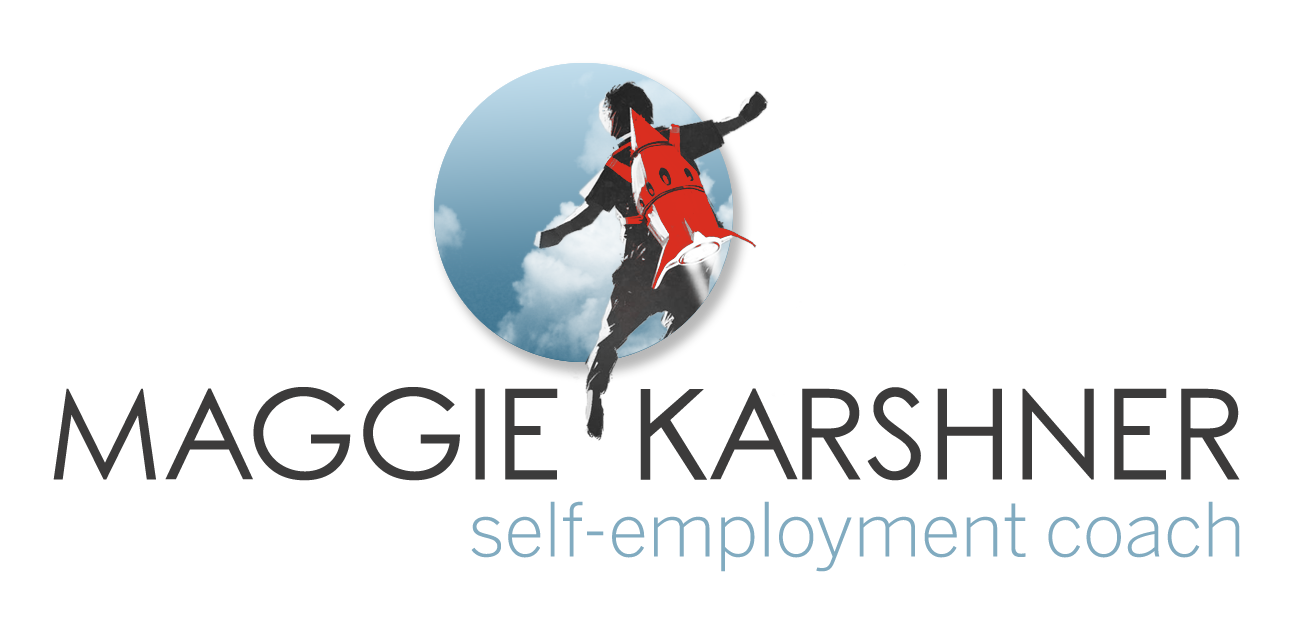Breakthrough Productivity: How to Motivate with Your Heart
/Title of the article superimposed over an image of a woman sitting on a bed working on a laptop.
Peers tell me that I'm quite good at being productive, and I can see what they mean. But there are limits to how productive even the most productive humans can be. The present moment, with Stay at Home orders and a global pandemic, is an immensely challenging time to be productive. I think this is a great moment to explore what productivity means and why it matters.
Let's dive into a foundational element of productivity: WHY do we need to be productive. Our society provides some easy answers to this question, and it's easier to be productive when your reasons are personal rather than external.
The most fundamental "why" to explore is: Why do you need to be productive at all? Not just this task or this project, by why does productivity matter to your life as a whole. This question precedes every item on a to do list and needs to be examined as the first step in clarifying your efforts.
Society
Our society offers some answers to this "why." In the way we've organized ourselves, time often equals money. So we need to be productive in order to earn an income. And there are many instances where this is not true. Tim Ferris' 4 Hour Work Week and the notion of "passive income" offer a method of earning income that's not directly tied to time.
Even when time is ousted in favor of results, one's income is still rather directly tied to productivity. This is not a universal truth, rather this is a feature of the capitalistic economic system we find ourselves in. Capitalism needs people to be productive in the ways it values in order to function.
Thanks to capitalism, these ideas are pervasive in our culture. Because of this we often independently reinforce this idea. Many of us have a fear that something bad will happen if I'm not doing enough. Idleness is somehow bad rather than rejuvenating.
Humanity
There are benefits to the capitalistic organization of our society, and any organizational system is going to gloss over some important points. I'm labeling the counterpoint to these societal messages "humanity." I see humanity and society as two parts of a whole and we need to keep both in mind for a fulfilled life.
To Be
In my experience, humans exist to be, not to do. Doing serves a purpose, but in the most fundamental sense, it's not our reason to exist. In my experience, existence and grappling with the concept of existence is what unites all lifeforms.
When we strive towards productivity, oftentimes that takes away from our ability to be. How can productivity take a back seat to existing? First and foremost, we need to have an awareness of our fundamental nature to exist. Secondly, we need to ask ourselves that question. (And if there are more steps, I haven't found them yet. Consider turning to a spiritual leader for further guidance on this.)
Relationships
Our relationships are our survival and that is not hyperbole. From a Darwinian perspective, there is little about us as individuals that ensures our survival. Rather, our advantage as a species is our social system. We band together to support one another and because of that our species survives.
The pandemic we currently find ourselves in twists our relationships in ways we never could have predicted. We're banding together to ensure vulnerable loved ones don't get sick, but in so doing, we're isolating ourselves in our homes away from others. This is at the same time a beautiful expression of care, and a painful absence of support. Maintaining relationships and getting the soothing benefit of connection is more difficult right now. And relationships are ever more vital since they are what's going to help us get through this.
Rather than focusing on what tasks need to get done, how can we nurture connections with others?
Contributing
Another fundamental part of humanity is that we want to contribute to our group - to our society. We feel good when we contribute. If we find ourselves only be-ing and only in relationship, it still feels like something is missing. It's so good for our mental health (and thereby the wellbeing of everything else in our world) that we feel accomplished.
This is the actual position of "productivity,” contrary to what capitalism would have you believe. Productivity comes after be-ing and relationships. Both those things are more important, and during a pandemic, more difficult or even overwhelming. Finding a balance is key.
For some, you might find that you're not able to be productive at the rate you're used to. That makes sense! So give yourself a break and do less. Explore be-ing and how you can nurture your relationships in this strange new world.
For others, you might find yourself tangled up and stuck in be-ing and relationships and the overall state of the world. Accomplishing something could feel like a good change and give you access to feelings of empowerment. Explore small seemingly insignificant actions that can connect you to an experience of productivity.
What does this mean for your to-do list?
When you think about the tasks you want to get done, they should fit into this larger picture and feed your humanity. Each task should be filtered through the question: Why does this task need to get done?
Tasks that are the most important tie into your core values or advance your life purpose. Other valuable tasks include those that help you grow and be a better human.
The tasks that can be eliminated from your to-do list are those that stroke your ego or pander to your fears. My ego might want me to be featured in a major publication, but pursuing that doesn't actually advance my values, purpose, or human-ness. Likewise avoiding something I'm afraid of, such as reaching out to someone I admire, hinders my ability to live my life purpose and doesn't reflect my core values. Your values and mine will differ, so what tasks or goals are important will also be different. Learning to eliminate ego or fear-driven tasks will make you more effective.
Action: Filter based on your Why
The catch here is that you don't want to get caught in the weeds. Do this exercise no more than once a week, and once a month is plenty for most. Take a look at your tasks, projects, and goals and ask yourself "why?" Why are these the things I'm putting my energy towards? Are they an extension of my life purpose, or do they merely exist to puff up my ego or soothe my fears?
Want Support and Guidance Navigating your to-do list? I'm running an Accountability, Action and Acceptance Group for exactly that purpose. Check it out!




